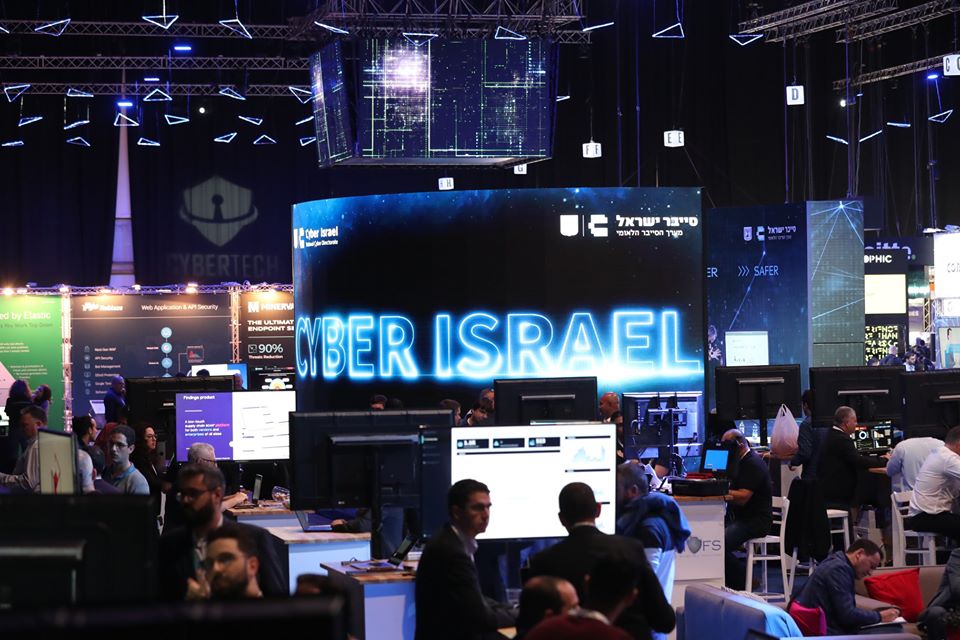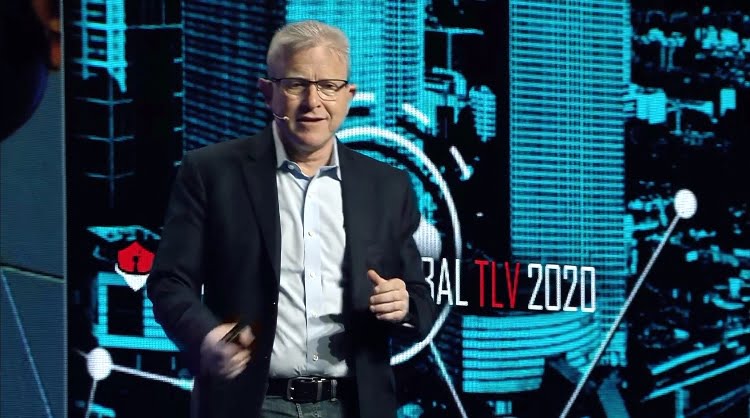The “deal of the century” put forth by US President Donald Trump and his administration is “an opportunity for cybersecurity co-existence,” including nine new industrial zones and technological cooperation with the Palestinians, former Jerusalem mayor and Likud MK Nir Barkat said on Thursday at the Cybertech 2020 conference in Tel Aviv.
“I’ve looked at the potential in Judea and Samaria and even now, there’s lots of collaboration between Israelis and Palestinians that are technologically based,” said Barkat, in reference to the territory also known as the West Bank. “What we have here is an opportunity to expand the new industrial zone. We can multiply by 10 the number of jobs, and by developing these business clusters…have hundreds of thousands of technologically rich labor-intensive Israelis and Palestinians working together, ” he told the crowd, calling it a “win-win for prosperity.”

“Technology makes a huge difference enabling people to work side by side in spite of their differences,” he added.
SEE ALSO: Insight Partners Acquires Israeli IoT Security Firm Armis For $1.1B
Barkat spoke early Thursday on the third day of the 7th Cybertech Global conference in Tel Aviv, the largest cyber technology summit in Israel and the largest cyber conference outside of the US. Thousands of visitors from around the world, including government officials, industry executives, entrepreneurs, major venture capitalists, investors, and advanced researchers were in attendance. The event focuses on the broad aspects of the cybersecurity revolution, including areas like health, career, transportation, economy, and judicial fields.
Barkat explained that it is also the idea of “joint” collaboration that makes Jerusalem one of the safest cities in the world, and a tech destination despite terrorism challenges. The cooperation between human intelligence and signal intelligence “together prevent almost 100 percent of attacks.”
Barkat said drones and face recognition apps were technologies that Israeli intelligence used to predict an attack, but also Israel’s way to “decrease motivation” of attackers was to go on with everyday life — never cancel events, always move on.
“In the past two years, Jerusalem is the fastest growing tourist destinations in the world as well as one of the fastest-growing high-tech hubs in the world,” said Barkat.
“Israel is very powerful in cybersecurity – it has an edge in turning security challenges into opportunities,” he said, “Anything that works here, especially in security, can be carried on to the world who looks to Israel for innovation.”
AI is the new trend in cybersecurity
The prominent use of artificial intelligence (AI) in cybersecurity was a running theme throughout the conference and a topic that was highlighted by a number of speakers.
Many speakers noted that just as cyber attackers were beginning to use AI in their methods of attack, the defender was also using it as a strong counter.
“There was a huge hype around AI as an enabler for a revolution or breakthrough in the defense organization’s ability to find the needles in the haystack, said Hudi Zack, chief executive director of the Israel National Cyber Directorate, “People thought AI would go through huge amounts of data and find anonymous behaviors and malicious patterns” even if the attacker’s whereabouts were unknown, he explained.
Sign up for our free weekly newsletter
SubscribeBut AI has also “helped us take one step forward in terms of defense capabilities,” though “it still has a long way to and a huge gap to fill as we move forward,” he told the audience.
Zack said he believes the “world of attack” will change significantly in the future, from current human-to-human mind games done over a long period of time to machine-to-machine battles done in a split second.

Zack said another attack vector related to AI is a sophisticated perpetrator’s ability to “interfere with the integrity of the decisions of AI systems controlling important aspects of our life – transportation, finance, energy, health.”
“These AI systems are aiming to make faster presumably better decisions, but affected, there’s very limited ability by humans to oversee and if needed, overall their decisions, make them susceptible to deception and manipulation,” he said, “Here also, a new defense prototype is needed.”
We still need to have the traditional defenses…but these good measures obviously will not detect and can’t block these new types of attacks,” Zack continued, “Developments need to be made by the users, data sources and more. It’s hard to imagine most organizations implementing AI systems. This is where government should come in and assist with knowledge, build laboratories and in some cases (such as critical infrastructures) provide the system to tackle the problem. Significant effort and a new paradigm is needed for the world we live in today.”
According to Mark Gazit, a cybersecurity expert who is also CEO of ThetaRay, an Israeli cybersecurity and big data analytics company, traditional AI doesn’t work anymore. The new world of AI, he says, means artificial intuition, not just artificial intelligence.
Artificial intuition is the theoretical capacity of an artificial software to function similarly to human consciousness, specifically in the capacity of human consciousness known as intuition. Gazit says human beings have this ability naturally, comparing it to sending your kid to a new school. After one day, the child will know who are the good guys and who are the bad guys, he explained.

“Computers couldn’t do it, because there is a need to connect a lot of dots. Now I’m glad to say that artificial intelligence does provide this ability to use intuitive AI — artificial intuition — to help organizations to protect themselves,” he said during his speech.
“This is the first year that people realize it is the only way to deal with a new world of cyber threats is to use an advanced level of artificial intelligence,” Gazit tells NoCamels on the sidelines of the conference. “Bad guys use artificial intelligence anyway so we, on the defensive side, need to be one step ahead. The new world of artificial intelligence is actually advanced artificial intelligence that mimics human intuition and allows systems and computers to behave like a very experienced investigator. It doesn’t need an explanation why something doesn’t look right, just detects, alerts the organizations and allows it to protect itself.”
SEE ALSO: Cybertech 2020: Israel Neutralized A ‘Serious’ Cyber Attempt On Main Power Station
AI and machine learning have become “buzzwords” in the cybersecurity sector, but they are also the technologies behind a number of the Israeli companies that presented at this year’s Cybertech conference in Tel Aviv including firms like Cybereason, Cyberbit, Comda, Hysolate, and Cynet.
Related posts

Editors’ & Readers’ Choice: 10 Favorite NoCamels Articles

Forward Facing: What Does The Future Hold For Israeli High-Tech?

Impact Innovation: Israeli Startups That Could Shape Our Future




Facebook comments